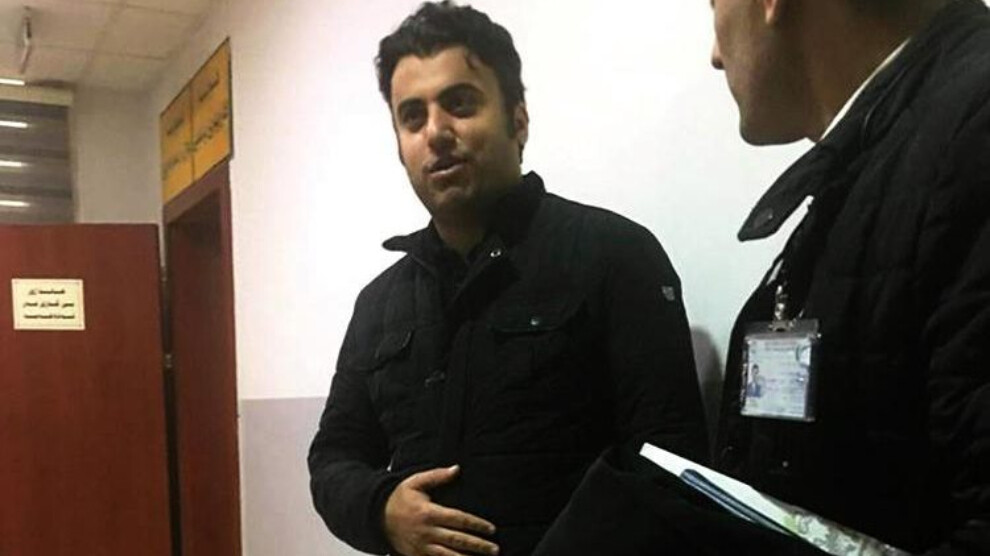Journalist Sherwan Sherwani from Behdinan sentenced to 4 years in prison
KDP arrested over 80 journalists, teachers and activists from Behdinan in 2020. Some of them still remain behind bars for politically motivated reasons.
KDP arrested over 80 journalists, teachers and activists from Behdinan in 2020. Some of them still remain behind bars for politically motivated reasons.

A court in Erbil (ku: Hewler) has sentenced Kurdish journalist Sherwan Sherwani to 4 years in prison, accusing him of fraud.
Sherwan Sherwani’s lawyer Kameran Sarmemi said: “The chief prosecutor did not attend the first hearing on the grounds that he was not prepared on the file. The hearing was therefore postponed to 20 July. In our opinion, we would have won the case back then as there was no evidence about my client at all. They adjourned the hearing to make sure that this did not happen. It is a purely political case.”
Background
Members of the Kurdish security forces [known as Asayish] arrested Sherwan Sherwani on 7 October 2020 in Erbil, the Kurdistan Region of Iraq’s capital, and the other 4 journalists- Guhdar Zebari, Hariwan Issa, Ayaz Karam and Shivan Saeed - on 22 October 2020 in Duhok, another main city in the KRG, in relation to their involvement in anti-government protests over unpaid wages and corruption.
On 16 February 2021, the journalists were each sentenced to six years in prison for "undermining national security." The trial against them drew sharp international criticism, as the entire proceedings as well as the sentences appeared politically motivated. Prime Minister Masrour Barzani (KDP) had publicly described the activists and journalists from the Behdinan region as "agents" and accused them of espionage only a few days before the verdict was announced. The sentence of Sherwan Sherwani was then reduced by 50 per cent, and the sentences of the other four by 60 percent. While Sherwan Sherwani and Guhdar Zebari remain under arrest, Zebari is expected to be released from prison in August unless his sentence is prolonged.
Throughout their detention, the five journalists were forcibly disappeared, some for more than three months. They had very limited access to their lawyers and family members. The five journalists told either their lawyers or family members that they had been subjected to torture and other ill-treatment. During the previous court hearing, all five journalists said that they had been forced to sign “confessions” under duress, but the court dismissed those claims. In addition, the hearing was held in closed session, as security forces barred entrance, including to immediate family members.
In a letter to the UN, representatives of the states and public opinion regarding the violations they have been exposed to, the prisoners stated that, “We are deprived of any human, legal and democratic right for all to see. We were sentenced because we demanded to be granted our rights and freedom of thought. Some of us have been sentenced for opposing the invasion and bombing of our country. The government, on the other hand, is now crying crocodile tears for the victims of the Turkish bombardment.”